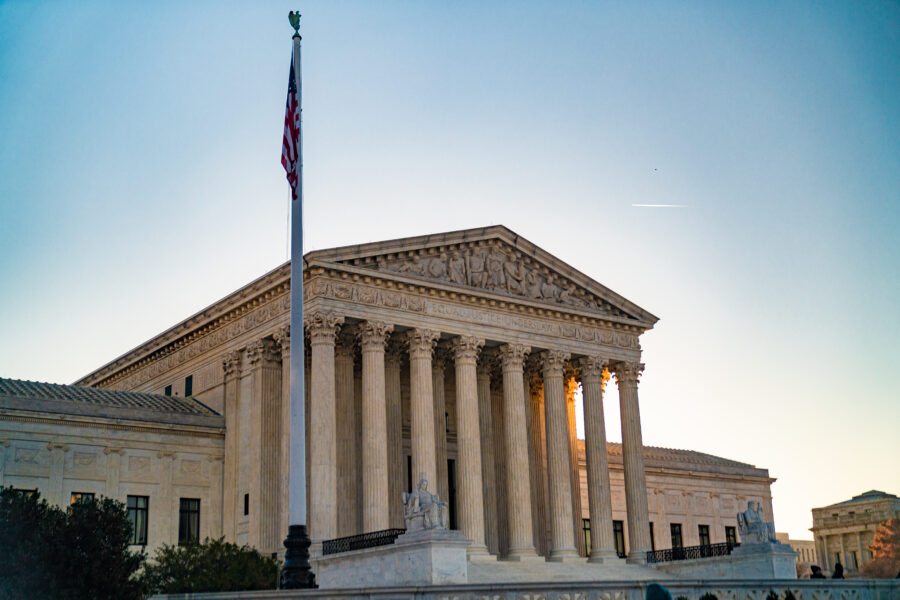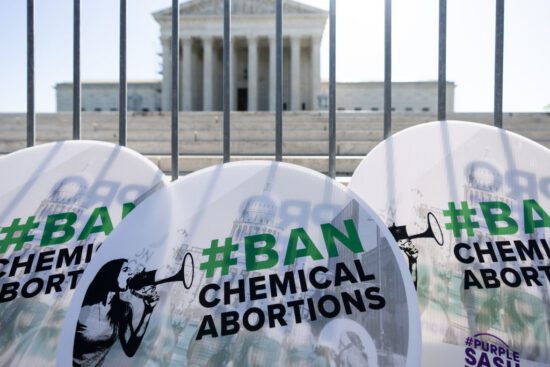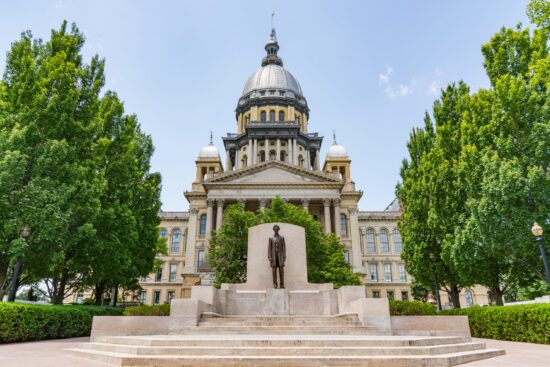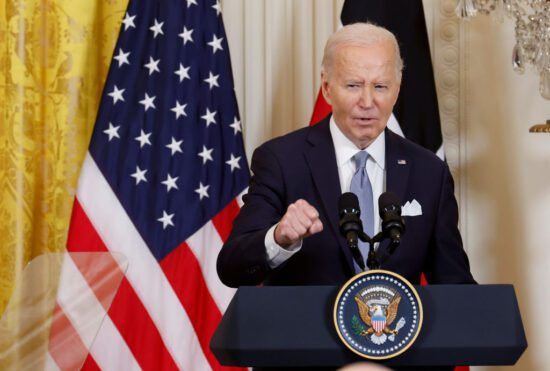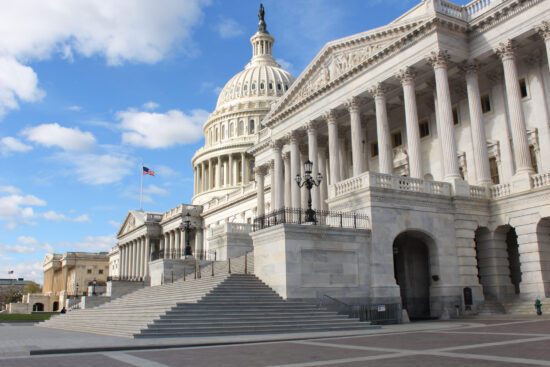Two years after Dobbs, the abortion landscape in the United States has changed dramatically. Though the horrific precedents in both Roe v. Wade and Planned Parenthood v. Casey were overturned by Dobbs v. Jackson Women’s Health Organization, the need for the tireless work of the pro-life movement is greater than ever. The pro-life movement has seen wins and losses at the state and federal levels since Dobbs. New challenges such as the spread of the abortion pill and “abortion tourism” have emerged, and a number of states will be forced to confront this issue on their November ballots.
As the pro-life movement faces questions about its path forward amidst these challenges, we must remain focused on our goal: contending for the value of each preborn life, ending abortion, serving mothers, and creating a culture where families can flourish.
Reflecting on the last two years
The states
With newfound power from the Dobbs decision, many states acted quickly to severely restrict access to abortion. Currently:
- 14 states have enacted abortions bans, and
- seven others have adopted laws with gestational limits.
In addition to passing these pro-life laws, many pro-life states have thought creatively and passed legislation that assists vulnerable women and families who might otherwise be considering abortion. As the Ethics and Public Policy Center notes in a new report, “In the two years since Dobbs, every state that has laws on the books protecting life in the womb has passed laws that expand support for pregnant and new moms and their babies.” These states are leading the way in this new chapter of the pro-life cause through:
- improving maternal healthcare,
- supporting pregnancy resource centers, and
- making sure necessary resources are available for new moms.
At the same time, other states sought to make themselves “abortion destinations” for those coming from other states where abortion had been restricted. These states have:
- enshrined access to abortion in their constitutions,
- adopted laws that protect doctors from repercussions for performing abortions or prescribing the “abortion pill” for those out of state, and
- have devoted finances to helping women travel to obtain abortions in their state.
This rise in “abortion tourism” meant that while states like Texas have seen abortions significantly decrease, overall, abortion rates are likely at the highest that they have been in a decade, according to the pro-abortion Guttmacher Institute.
Congress
While the states have been active in response to the Dobbs decision, any real action in Congress has largely stalled. Though we’ve seen some small victories in the House of Representatives with the passage of the common sense Born Alive Survivors Protection Act and the Pregnant Students’ Rights Act, these bills have not progressed in the Democrat-controlled Senate.
Similarly, important legislation that could assist new moms and families through an expansion of the Child Tax Credit has stalled in the Senate because of procedural disagreements. Meanwhile, Democrats in the Senate have pushed forward constant “messaging” votes promoting abortion that, though they fail, attempt to make Republican senators take difficult votes on an issue where they have become increasingly squeamish.
Perhaps the most concerning aspect of the past two years in Congress has been the trend of lawmakers seeking to distance themselves from the cause of life. As lawmakers increasingly view abortion as a political liability, many have stepped back from their previous pro-life stances and have argued that the federal government no longer has any role to play in the abortion conversation. This is deeply problematic for two reasons:
- It makes maintaining basic pro-life protections, such as the Hyde amendment, more difficult.
- It points to a future where members of neither party are willing to risk political capital in defense of the preborn.
The Biden administration
After the Dobbs decision, President Biden asserted his commitment to federally protected abortion access in place of the precedent established by Roe. Following the decision, through his power of executive orders, Biden signed the “Protecting Access to Reproductive Health Care Services” order, mandating the secretary of Health and Human Services (HHS) to secure abortion access. This order has been used by federal agencies to push forward pro-abortion policies that:
- expanded access to the abortion pill,
- paid for abortion travel, and
- used taxpayer resources to fund “education” efforts around how to access abortion.
In 2024, the Biden administration has finalized at least six regulations that in some way mandate expanded abortion access. One such regulation that is particularly troubling comes from the Equal Employment Opportunity Commission (EEOC), which has subverted a pro-life, pro-mother piece of legislation called the Pregnant Workers Fairness Act (PWFA) and inserted a mandate for employers to provide leave for an employee to obtain an abortion. The bipartisan PWFA is a law that was intended to assist pregnant and new mothers in the workplace with obtaining basic accommodations to allow them to safely continue working during pregnancy and after childbirth. Despite clear Congressional intent, the EEOC pushed forward its pro-abortion agenda. This new regulation is already being challenged in court.
The courts
In addition to litigation surrounding the implementation of the PWFA, many lawsuits have been filed challenging these Biden administration rules. The ERLC pushed back on many of these proposed changes through public comments and now is seeking to support these litigation efforts.
While these cases get underway, two significant cases have been and are going to be decided by the U.S. Supreme Court on the issue of abortion this term.
On June 13, the Supreme Court rejected a challenge to FDA’s actions related to the abortion pill in the case Alliance for Hippocratic Medicine v. FDA.
- This case centered on the FDA’s failure to protect the health and safety of women and girls who take the “abortion pill” by loosening regulations related to its prescription, such as allowing it to be sent through the mail, no longer requiring in-person doctors visits, and expanding its use from 7 to 10 weeks gestation.
- The abortion pill now makes up nearly two thirds of all abortions, and 1 in 5 women who take these drugs experience complications requiring further medical treatment.
The court decided that the pro-life doctors bringing this challenge lacked “standing” and rejected the case on procedural grounds. This means that further litigation on this topic could happen from other parties, but for now, the status-quo, sadly, remains.
Likely later this week, the Supreme Court will also deliver a decision in the Idaho and Moyle, et al. v United States case. This case is a challenge to Idaho’s Defense of Life Act which prohibits most abortions, except for when necessary to save the life of the mother.
- The Biden administration has argued that this law is in conflict with the federal Emergency Medical Treatment and Labor Act (EMTALA), which requires hospitals that receive Medicare funds to provide emergency stabilizing medical care.
- The Justice Department’s challenge to Idaho’s abortion ban argues that abortion is a necessary component of such medical care, and thus, this Idaho’s pro-life law is in violation of federal law.
Fundamentally, both Idaho’s law and EMTALA were created to protect life and should not be in conflict. However, if successful, the Biden administration will certainly use this tactic to overturn many state pro-life laws.
What comes next?
Life on the ballot
Since the Dobbs decision, pro-abortion advocates have rallied around using the ballot initiative process to push forward abortion access and even enshrine a right to abortion in several state constitutions. In all seven contests where abortion has been on the ballot since Dobbs, the pro-life side has lost. Because of that, Democrats and pro-abortion activists have pushed to have such measures on the ballot in as many states as possible this November. Currently, four states have already put the question on the ballot, with at least six other states likely to follow.
These initiatives pose a real challenge to the pro-life movement, which has been overwhelmingly overspent by the pro-abortion side in trying to defeat these initiatives. As voters have the question of abortion before them in the ballot box, there is much work to be done in educating and shaping the hearts and minds of our nation to see life as valuable and worthy of protection. It is essential that our churches and our people be ready to proactively tackle these questions and provide evidence to our communities that we believe the preborn hold immeasurable worth and are doing the work of standing with women facing challenging pregnancies.
As the ERLC continues to advocate for policies that uphold these realities, we are also partnering with state conventions to provide our churches with resources for these upcoming votes this fall.
Stopping the abortion pill
Despite the setback faced by the recent FDA ruling, the pro-life movement must press forward in stopping the harms caused by chemical abortion to millions of preborn children. As we continue to push forward litigation, we must also consider what other tools could be used to restrain this horrific drug.
- Many pro-life advocates have rallied around the use of the Comstock Act, a still-active, 1873 anti-obscenity law which specifically prohibits the mailing of “every article or thing designed, adapted, or intended for producing abortion.”
- Additionally, just as the federal rulemaking process has been used to loosen restrictions on chemical abortion drugs through the FDA and other federal agencies, a pro-life administration has many tools at its disposal to again reinstate these restrictions and safety precautions.
The ERLC will continue to advocate for the enforcement of the Comstock Act as well as any available executive actions that can restrict or eliminate the availability of chemical abortion drugs to be a top priority for any pro-life presidential administration. Similarly, we will continue to push back on expansions of these drugs from this pro-abortion administration.
Building support for moms and families
The vast majority of women who choose to have an abortion do so because they feel as if it is their only option. Whether these women lack the financial resources, the community support, or face pressure from those around them, the Church must continue to step in and meet these women in their time of need. In 2022, pregnancy resource centers, many of which are supported by churches, provided an estimated $350 million in services to some 975,000 clients.
These centers fill vital gaps for women, but they are not able to meet every need alone. As we seek to support the work of these centers and the ministries of many churches, the pro-life movement has also rallied around policies that could assist vulnerable mothers and promote family flourishing. There is much that can be done by lawmakers of both parties to empower women to choose life, including:
- increasing the affordability of adoption,
- making sure necessary resources are available at the time of a child’s birth, or
- helping parents bond with their new children.
Future frontiers
In the spring of 2024, the national conversation turned to in vitro fertilization (IVF) following a groundbreaking ruling from Alabama that found embryos frozen through the IVF process to be people. Since that ruling, many of our lawmakers have rushed to defend IVF, as it quickly became a campaign issue. Southern Baptists have called for serious consideration regarding the use of IVF because of significant concerns with how it is routinely practiced in the U.S., often leaving many embryos to be discarded or frozen indefinitely with no standard of care. Because there are essentially no reporting requirements or regulations governing the practice of IVF, it is unknown how many frozen embryos currently exist, but estimates suggest that it is over a million children.
Despite political headwinds, it is vital that the pro-life movement make the case for the dignity of the children created through IVF. Much can be done to regulate the IVF industry and to conduct IVF in a more ethical manner. As people who believe that life begins at fertilization, we must reckon with the fact that this is an area where life is not currently being protected and advocate for such protections to be implemented. Now that the issue of IVF and broader assisted reproductive technologies have entered the mainstream, the pro-life movement must work to educate not only lawmakers, but also the hearts and minds of our people as to why these preborn lives must be protected.
As we look ahead at each of these areas, a consistent theme emerges. We need unwavering, courageous leadership from our lawmakers as well as the people in our churches and our communities to chart a path forward and provide a compelling witness to a skeptical world. It took 50 years of dedicated work from the pro-life movement to reach the milestone of overturning Roe. We have to recognize that the road ahead is long and will not be easy as we confront these emerging challenges.
As our lawmakers increasingly attempt to distance themselves from protecting life and claim that Dobbs has absolved them of any responsibility, we must hold them accountable and urge them to be steadfast in their defense of life. If we truly believe that life is sacred and each person is made in the image of God, then we must continue to contend for a reality where abortion is both illegal and unthinkable, even when such a vision seems politically implausible. Until we reach that day where abortion is no more, let us redouble our efforts to save as many lives as possible, serve mothers, and create a culture that celebrates life.



